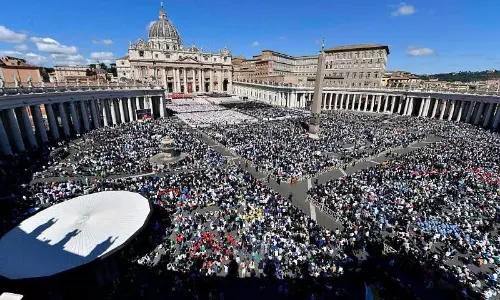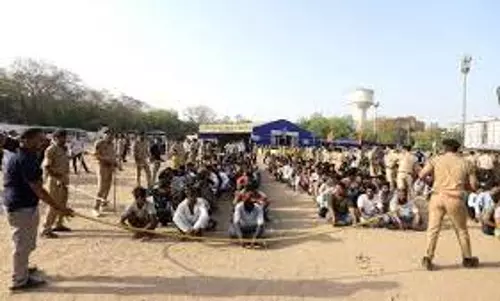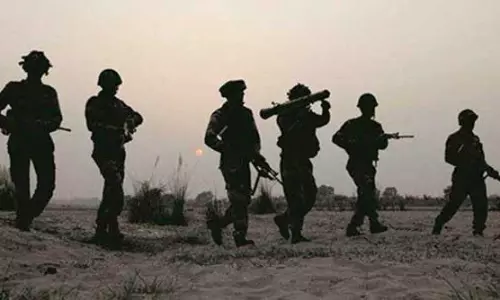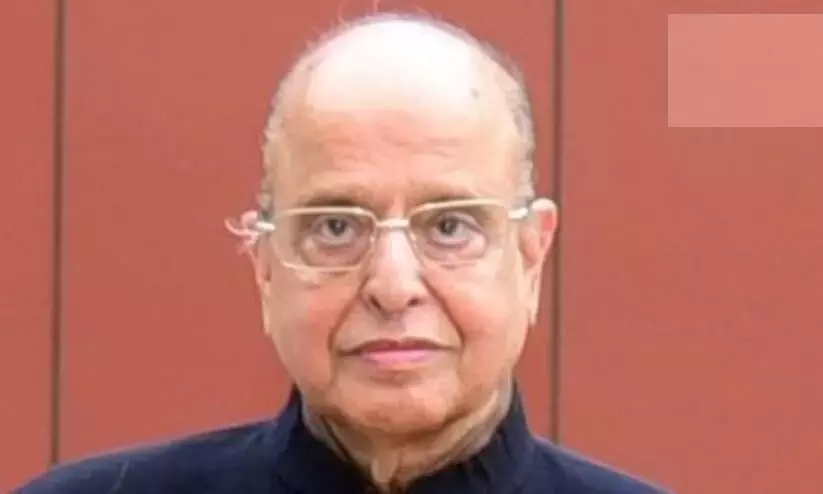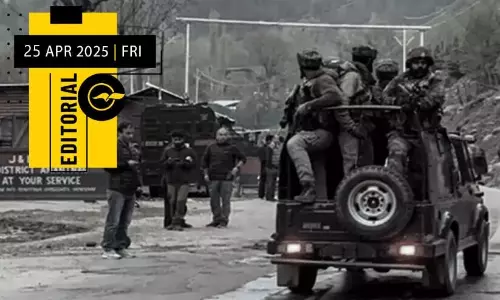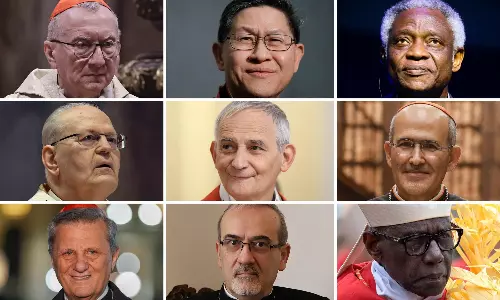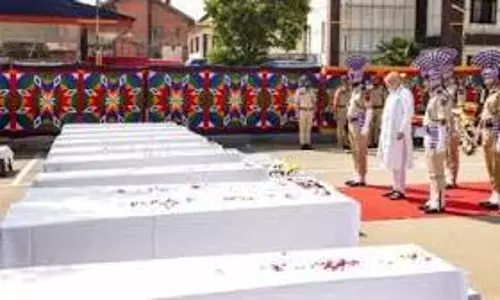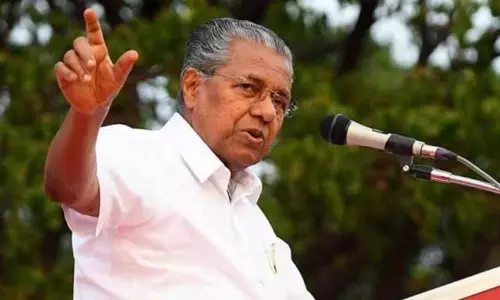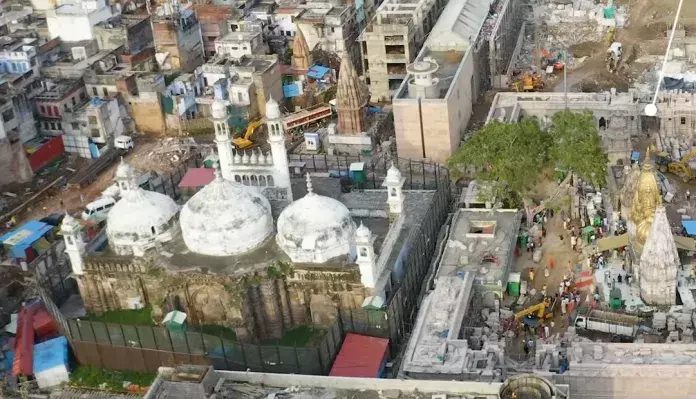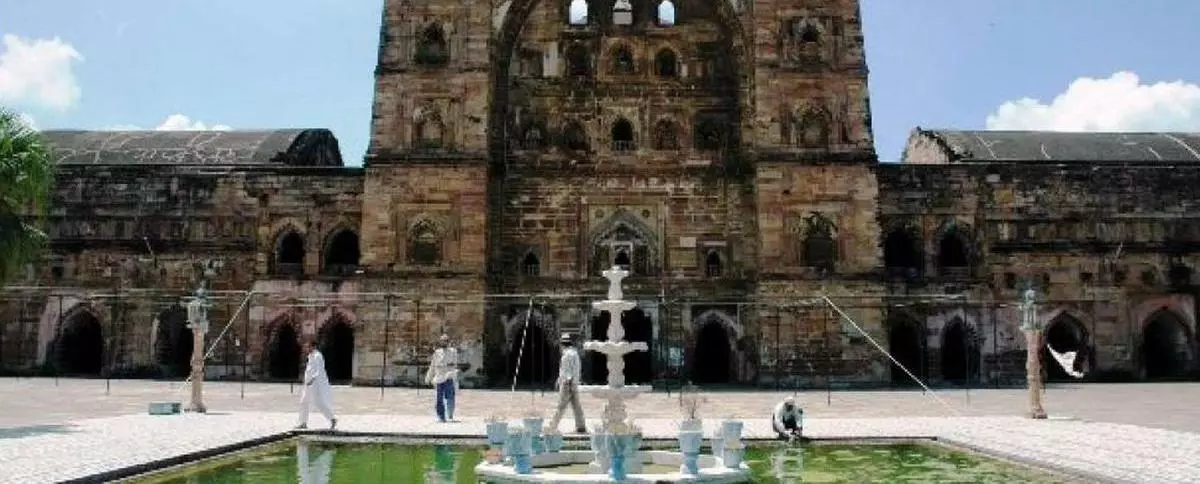
Centre mum when the country waits impatiently
text_fieldsWith the Supreme Court effectively stalling all litigation for surveys of mosques across India, till it has completed examining the constitutional validity of the Places of Worship Act, 1991, the Centre may finally be forced to make its stand clear on this issue because its refusal to clarify its stand has unleashed a plethora of petitions in lower courts across India ordering surveys of mosques. At least 18 such suits, involving 10 places of worship, are pending across the country, including Gyanvapi in Varanasi, Shahi Idgah in Mathura, Jama masjid in Sambhal, Ajmer Sharief Dargah and Bhojshala in Dhar, MP. The recent violence in Sambhal following the survey, where seven people were killed, is still convulsing the city.
The mindless cacophony demanding surveys of mosques across India had seen communal frenzy soar to new heights after the Supreme Court refused to stay a Varanasi civil court order for a survey of Gyanvapi mosque in 2022. This had emboldened fundamentalists elsewhere and similar suits were filed in Mathura, Bhojshala, Sambhal and Ajmer. But what has come as a breath of fresh air is the Supreme Court order of Decemebr 12, 2024 barring lower courts from registering any fresh cases of this nature or passing any effective or final order in ongoing cases, including orders for survey, till it has concluded hearing in the Places of Worship Act, 1991.
A three judge SC bench, headed by the Chief Justice of India Sanjiv Khanna and comprising justices P V Sanjay Kumar and K V Viswanathan, which was hearing the petitions challenging the Places of Worship Act, ruled that ” as the matter is sub judice we direct that while suits may be filed, no suits shall be registered or proceedings initiated until further orders. In pending cases courts are restrained from passing any effective interim or final orders including survey orders.” The CJI also said that while the matter was pending before it, it was not just or fair for any other court to examine the issue. The bench also observed that when a 5-judge bench of the Supreme Court had settled certain issues ( referring to the Ayodhya verdict upholding the validity of Places of Worship Act) the lower courts cannot run a race with the Supreme Court. The court has given the Centre four weeks time to file its reply. “We want the Union of India’s position to be brought on record", the bench said. This particular order may now force the government of India to spell out its stand on the issue.
The very fact that the position of the Union of India on the Places of Worship Act, 1991, has not been clarified, is the root cause of all problems in this regard. By keeping mum, it appeared the Central government was indirectly becoming a party to the absurdities in Varanasi, Mathura, Sambhal and now Ajmer Sharief. Since it has chosen to be a mute spectator while courts are ordering surveys and tempers are running high across the country, it is suspected that it indirectly supported such demands. For all those believing in the rule of law, it was mind-boggling that when there is this law in the country which mandates that the nature of any religious place as on August 15, 1947, cannot be altered, how come the courts allowed surveys. To what end? The law enacted by the Narasimha Rao government in 1991, made the Ram Janmabhoomi temple an exception because a fierce movement was then underway demanding control of the entire land on which the temple stood in Ayodhya and a case was already pending. It was specifically to prevent any such movements arising in the future on similar demands that the law was enacted. As long as this law is in place, it is not legally possible to alter the religious character of any place of worship in the country. It was thus intriguing that the Centre chose to look the other way when demands to get control over the Gyanvapi or Idgah mosque were being made by Hindutva organizations.
Even more unfortunate was the fact that the government not only kept quiet over statements outside, it has also kept mum over this issue in the Supreme Court since 2020. The Places of Worship Act was first challenged in June 2020 when a Lucknow based organization called Vishwa Bhadra Pujari Purohit Mahasangh, along with advocate Ashwini Upadhyay, filed a petition in the Supreme Court , challenging the constitutional validity of this act. Since then, the apex court has issued many notices to the Centre but till date the Centre has said nothing. At least on half a dozen occasions, the solicitor general, appearing on behalf of the government said “ it needed time for a comprehensive” reply on the issue.
On January 10, 2023, when the matter came up for hearing the solicitor general sought more time saying the Centre is “consulting” on the issue and the “process” is on so some more time be granted. The Court fixed the date for end of February, on which the Solicitor General said “we may file the affidavit before that". But no affidavit was filed. On July 11, 2023, when the case once again came up for hearing, Solicitor General Tushar Mehta once again pleaded for more time for the government to make up its mind about the law. The case was to come up for hearing again on October 31, 2023. Still no affidavit was filed by the government. With the Supreme Court now once again directing the government to file its affidavit within four weeks, by January 12, 2025, it remains to be seen whether the Centre continues to keep mum and keep dithering and whether the Supreme Court allows it the freedom to keep mum.
Meanwhile, the SC verdict has been hailed by Muslim outfits including the All India Muslim Personal Law Board which issued a statement saying hopefully this would deter malicious activities targeting mosques across the country. It urged the Supreme Court to adopt a clear and positive stance on the Places of Worship Act to ensure the rule of law and curb attempts at spreading unrest and instability.
High time the government of India spelt out its stand on the Places of Worship Act, 1991. It cannot afford to stay silent anymore.







